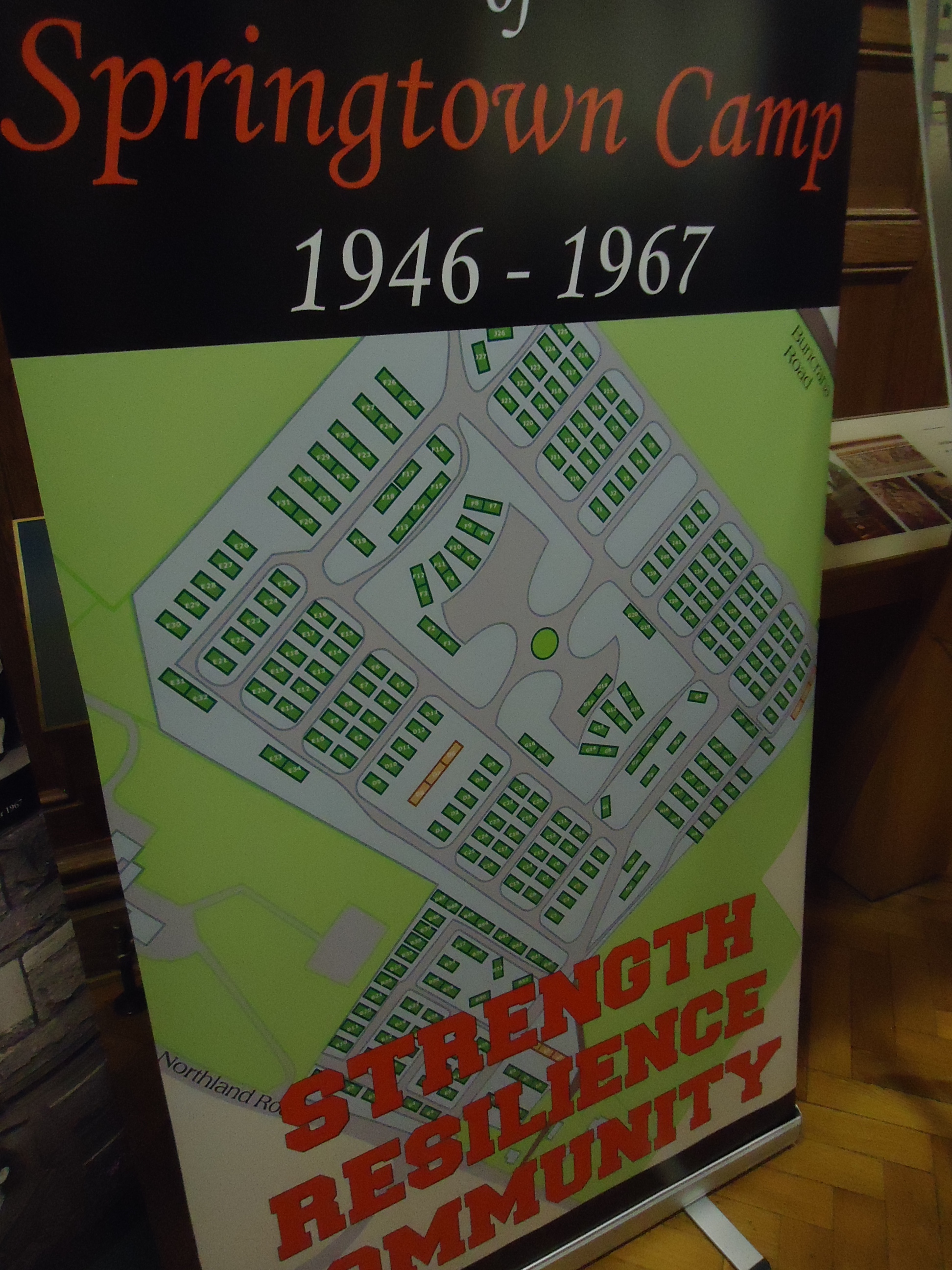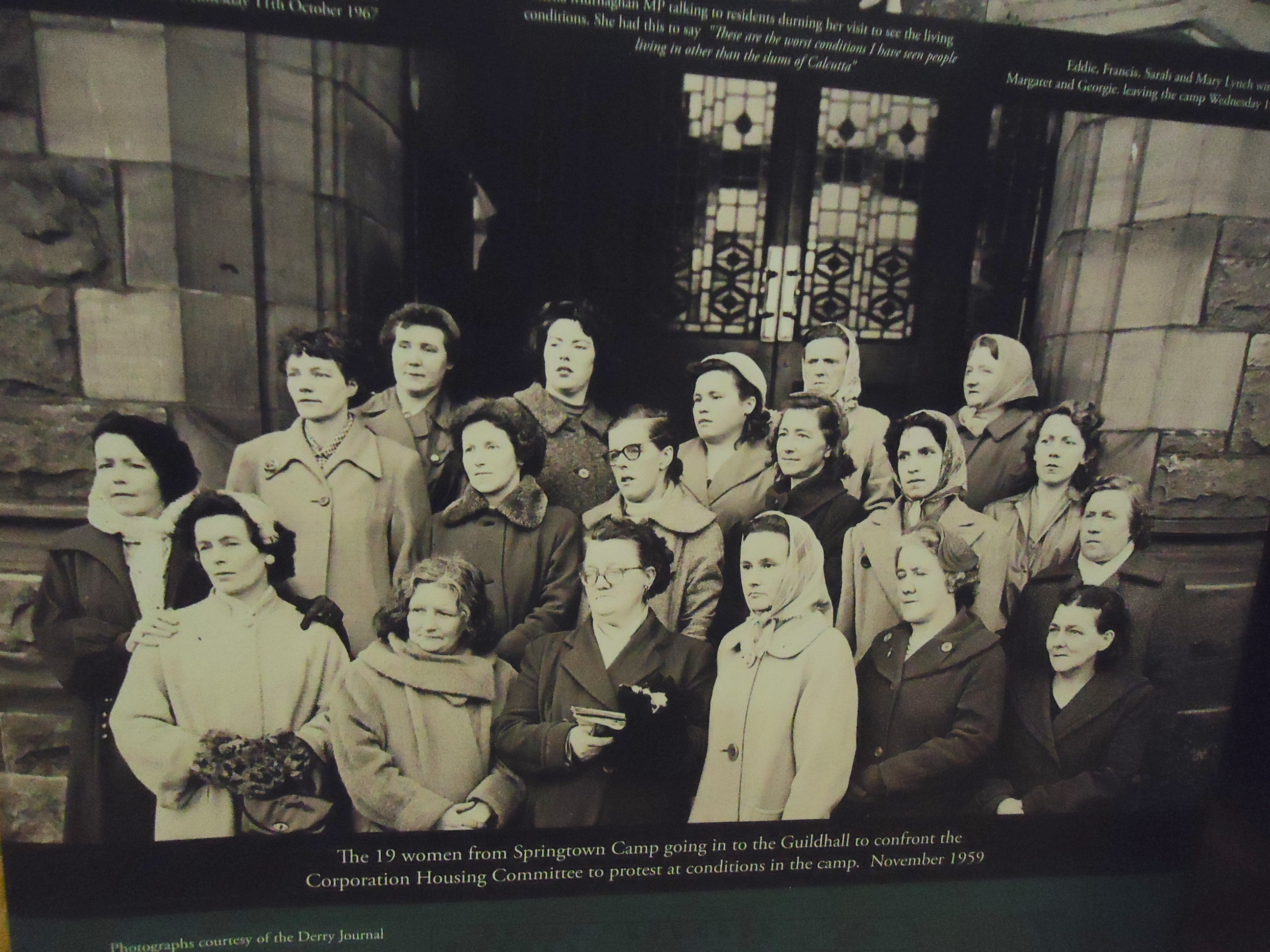50 Years On
Today was a long day but very informative. Panel #1 was historians talking about the context for the civil rights march of 50 years ago. I did not understand, for instance, the total control enjoyed by the Protestant elite who ruled Derry in the 1960s (the so-called Londonderry Corporation, formed by the London guilds who funded the Plantation City in the 1600s). When Dupont wanted to open a plant in Derry in the 1960s, the good burghers of the Corporation opposed the arrival of a foreign company. In a city desperate for jobs, why might that be? The Corporation did not want Catholics to get jobs. The head of the corporation at the time wrote a letter to Stormont demanding that the government incentives offered to Dupont be withdrawn. The letter blatantly referenced the inability to protect jobs for Protestants. A compromise was reached whereby Dupont agreed to hire a well-connected Protestant as head of personnel. Unbelievable.
Given this information, not surprising that low-income housing was allocated to Protestants, not Catholics. As a result, a few hundred families lived in tin huts hastily erected during the Second World War. Women from the Springtown Camp went to the Guildhall in 1959 to demand better housing for their families. The same Guildhall that hosted this weekend’s events and an exhibit on Springtown Camp.
Most of the women would have worked in the shirt factories while most of their husbands would have been unemployed.
Panel #2 was made up of people who were on the march 50 years ago. Fionnbarra O’Dochartaigh, Erskine Holmes, and Eamonn McCann among them. Erskine said his head was not split open because the policeman who had his head in a lock was aware he was being filmed by an RTE cameraman. When a B Special pulled out a club to attack him, the policeman told him to get lost because of the camera (the cameraman later told Erskine he saved his life). Once in the paddy waggon with 10 others, Erskine noticed axe handles on the floor. Another marcher asked the driver: Sure you wouldn’t use those on a man would you? The driver replied: You bastards killed my brother in 1956, I’d use whatever I could.
So, in the eyes of the police, people marching to demand jobs and decent housing were IRA terrorists.
Fionnbarra O’Dochartaigh (trans: Finbar O’Doherty) told of being called to the bishop’s house and ordered not to cause trouble. As he left, he said to the bishop: You know why we have Christmas? Because Jesus was homeless!
The next speaker was President Michael D. Higgins. Standing room only crowd, three deep along the walls. So much love in the room for that man. Here are some of my notes:
"Forgiveness cornerstone in construction of hope. Forgiveness must be informed by understanding difference. Amnesia of no value. Construction and revision of collective memory.” There is a war of narratives in N.I. Sinn Fein, the political heir to the IRA, defends the IRA Troubles campaign because of the presence of British soldiers in N.I. and their role in protecting Protestant paramilitaries. But the IRA killed far more people than the Protestant paras or the British forces--many of them civilians. Were British soldiers here at great sacrifice to prevent civil war? Or were they complicit? Or both? Nothing is settled in the history here, and that is what Higgins was getting at. The legacy of the Troubles (the anger of aggrieved families who have seen no hint of justice for their loss) is aggravated by a refusal to acknowledge what happened.
Sinn Fein sponsored a civil rights march today, which angered the people at the Guildhall who don’t like their civil rights work commandeered by the IRA and its sympathisers. They feel the IRA campaign was a vicious bloodletting that was all the more tragic for having been unnecessary.
The final speaker was Feargal Keene, a foreign correspondent first for RTE and then for the BBC. He covered the Troubles here in the 1980s before going to South Africa, Rwanda, Yugoslavia, and other troubled lands. He said that the rate of killing in Rwanda, using clubs and machetes, was five times faster than in Nazi Germany. The root cause was the same as here, reducing groups to hateful stereotypes.
"For every butcher and torturer I’ve met there have been many more people who stood up for human rights. Who overcame their backgrounds to keep an open mind and heart. What stopped this place from becoming Bosnia or Rwanda? It wasn’t the security policy. Sufficient decency survived. There was enough love for this place that you call home on all sides not to resort to the politics of neighborly mass murder. Take credit for that. Use it in this time of stalemate.”
He presented an award to the wife of John Hume, the architect of the Good Friday Agreement, and, like others, lamented the lack of leadership in Northern Ireland today.
There were two more panels today but I headed to Julie’s house, where I had a very long natter with herself and her friend Roisin.
There was an event tonight where 12 women read from their work--poetry and short story. But I was already on overload.
Oct. 6

